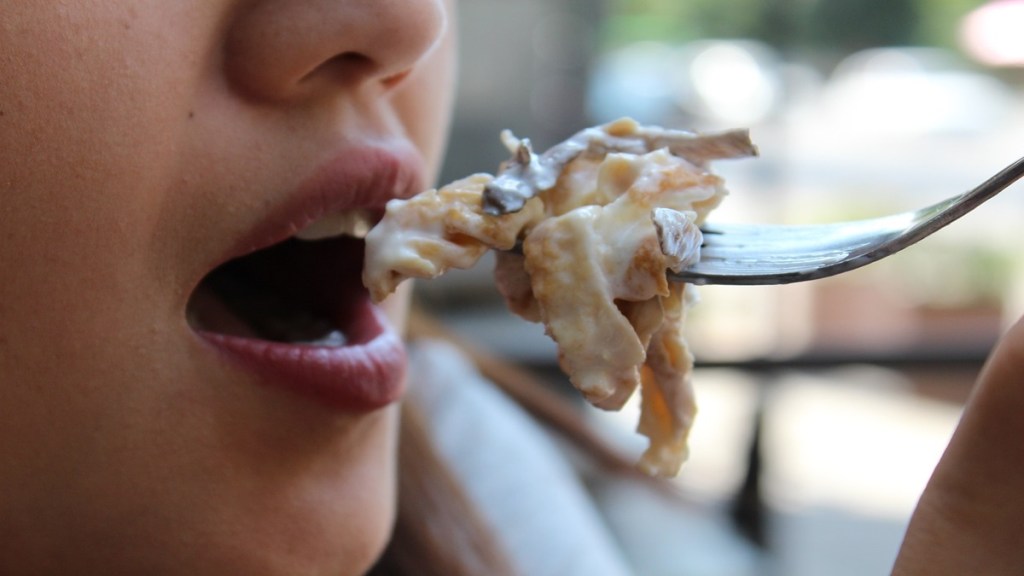In times of stress, many of us turn to food for comfort, a behaviour commonly known as emotional eating. While indulging in your favourite treats may provide temporary relief, it’s important to be aware of the potential consequences for your dental health.
According to Dr. Prashant Bhasin, B.D.S, M.D.S, Professor & HOD, Dept of Conservative Dentistry & Endodontics, stress eating can lead to increased consumption of sugary and acidic foods, which can ultimately stress out your teeth.
Understanding the connection between emotional eating and oral health is crucial for maintaining a healthy smile, Dr. Bhasin explained. Read the article to understand the connection between stress-induced eating habits and dental problems.
Understanding Stress Eating
Stress eating, also known as emotional eating, is when people turn to food for comfort during times of stress, anxiety, or other intense emotions. It’s a common coping mechanism but not always about physical hunger.
A study found that higher levels of cortisol, insulin, and stress predicted weight gain. When we’re stressed, our bodies release hormones like cortisol. These can increase appetites and cravings, especially for sugary or high-fat foods. These foods can give us a quick mood boost but are often short-lived. Stress eating is different from regular eating in a few ways:
- It often happens suddenly and feels urgent
- It usually involves specific comfort foods
- It doesn’t stop when you’re full
- It might be followed by feelings of guilt
“Understanding why we stress eat is the first step in managing this habit and protecting our overall health – including our dental health,” Dr. Bhasin told Financial Express.com.
Impact of Stress Eating on Dental Health
Stress eating, often triggered by emotional stress, can have detrimental effects on dental health. Frequent consumption of sugary and acidic foods during periods of stress increases the risk of tooth decay and enamel erosion. Moreover, the tendency to neglect regular oral hygiene practices when stressed can aggravate these issues, leading to more severe dental problems over time, he revealed.
- Sugar overload: Stress eaters often turn to sugary snacks and drinks, which feed harmful bacteria in the mouth, leading to increased acid production, weak teeth and tooth decay.
- Frequent snacking: The habit of eating throughout the day means teeth are constantly exposed to food particles and acids without time to recover.
- Acidic food choices: Comfort foods like citrus fruits, sodas, and certain candies are often acidic, which can erode tooth enamel over time.
- Sticky situations: Chewy or sticky comfort foods can cling to teeth longer, increasing the risk of cavities.
- Nutrient deficiencies: Opting for processed comfort foods instead of balanced meals may lead to deficiencies in vitamins and minerals crucial for dental health.
- Dehydration: Replacing water with sugary or caffeinated drinks during stress eating can reduce saliva flow, which is essential for neutralising acids and cleaning the mouth.
- Mindless eating: When stress eating, people may be less conscious of oral hygiene, potentially skipping brushing or flossing after snacking.
“Awareness of these specific impacts of stress eating on dental health emphasises the importance of being mindful of food choices and maintaining good oral hygiene, especially during stressful periods,” Dr. Bhasin told Financial Express.com.
Managing Dental Health During Stressful Times
When stress leads to unhealthy eating habits, protecting your dental health is crucial. Practice mindful eating by choosing tooth-friendly snacks like vegetables or cheese and rinsing your mouth with water after eating if you can’t brush. Stay hydrated and maintain your regular oral hygiene routine, even when stressed. Consider chewing sugar-free gum to stimulate saliva production and help clean your teeth between meals.
“Do not neglect your regular dental check-ups, as they are essential for catching any issues early. Lastly, explore healthier stress-relief options like exercise or meditation to reduce the urge to stress eat. Implementing these strategies can safeguard your smile even during challenging times,” he explained.

